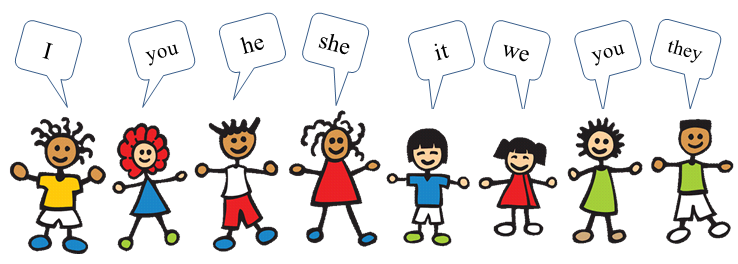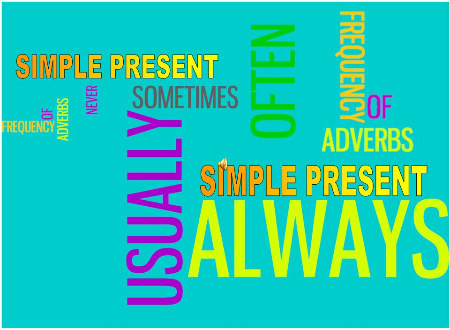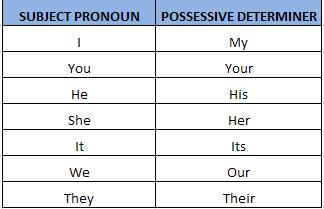This is a blog mainly for young teenagers,those who care about English- my pupils from 7th grade!
Showing posts with label Grammar. Show all posts
Showing posts with label Grammar. Show all posts
Monday, 5 March 2018
The Prepositions of Place
The Prepositions of Place
Etiquetas: Grammar, Vocabulary, videos,
Grammar
Prepositions on Place and Movement
Etiquetas: Grammar, Vocabulary, videos,
Grammar
,
Prepositions on Place and movement
Thursday, 15 December 2016
Prepositions of Time IN; ON; AT

Try these links to practice the Prepositions of Time IN; AT: ON
http://www.usingenglish.com/quizzes/64.html
http://www.englisch-hilfen.de/en/exercises/structures/prepositions_at_in_on_time.htm
http://www.perfect-english-grammar.com/time-prepositions-exercise-2.html
http://www.eamus.it/exercises/prepositions-05-time-at-in-on.htm
http://esl.about.com/library/quiz/blgrquiz_prep3.htm?lastQuestion=2&answers=0&submit=Next+Question+%3E%3E&ccount=2
http://www.englishexercises.org/makeagame/viewgame.asp?id=6259
Etiquetas: Grammar, Vocabulary, videos,
Grammar
,
Prepositions of Time
Friday, 15 May 2015
Past Simple -Irregular Verbs
Etiquetas: Grammar, Vocabulary, videos,
Grammar
,
Past Simple
Wednesday, 13 May 2015
The Past Simple of Regular Verbs
Yesterday Tigger and Piglet danced a lot
| Simple Past- Affirmative | Simple Past - Negative |
|---|---|
regular verbs: infinitive + ed
|
Auxiliary verb do in the Past =
= DID + not+ verb
Example: I did not work = I didn't work
|
| Exceptions | |
Exceptions when adding ed:
| |
We use the Past simple to talk about actions which
happened in the Past
Key words: YESTERDAY/ THE DAY BEFORE YESTERDAY / LAST... / ... AGO
Links for exercises on this topic:
http://www.englishexercises.org/makeagame/viewgame.asp?id=1782
http://www.englisch-hilfen.de/en/exercises/tenses/simple_past_statements.htm (aff.)
http://www.tolearnenglish.com/exercises/exercise-english-2/exercise-english-6036.php(aff./ neg.)
Etiquetas: Grammar, Vocabulary, videos,
Grammar
,
Verb tenses
Friday, 17 April 2015
Verb There to be and the House
Multiple Choice Exercise
There is or there are - English exercises
There is
There are
Examples:
There is a mouse in the bag.
There are four girls in a team.
|
Etiquetas: Grammar, Vocabulary, videos,
Grammar
,
videos
,
Vocabulary
,
Vocabulary(house)
Sunday, 8 February 2015
Adverbs of Frequency + Present Simple for habitual actions
We use some adverbs to describe how frequently we do an activity.
These are called adverbs of frequency and include:
| Frequency | Adverb of Frequency | Example Sentence |
|---|---|---|
| 100% | always | I always go to bed before 11pm. |
| 90% | usually | I usually walk to work. |
| 80% | normally / generally | I normally go to the gym. |
| 70% | often* / frequently | I often surf the internet. |
| 50% | sometimes | I sometimes forget my wife's birthday. |
| 30% | occasionally | I occasionally eat junk food. |
| 10% | seldom / rarely | I seldom read the newspaper. |
| 5% | hardly ever | I hardly ever drink alcohol. |
| 0% | never | I never swim in the sea. |
* Some people pronounce the 'T' in often but many others do not.
The Position of the Adverb in a Sentence
An adverb of frequency goes before a main verb (except with To Be).
| Subject + adverb + main verb |
|---|
| I always remember to do my homework. |
| He normally gets good marks in exams. |
An adverb of frequency goes after the verb To Be.
| Subject + to be + adverb |
|---|
| They are never pleased to see me. |
| She isn't usually bad tempered. |
Try these links for some useful exercises
http://www.englisch-hilfen.de/en/exercises/adjectives_adverbs/adverbs_of_frequency.htm
http://www.englisch-hilfen.de/en/exercises/adjectives_adverbs/adverbs_of_frequency1.htm (HOMEWORK)
http://www.ego4u.com/en/cram-up/grammar/word-order/exercises?11
http://esl.lbcc.cc.ca.us/eesllessons/adverbfreq/adfreqz.htm
http://perso.wanadoo.es/autoenglish/gr.frequ.i.htm
http://www.autoenglish.org/gr.frequ.i.htm
Etiquetas: Grammar, Vocabulary, videos,
Grammar
,
Word order
Friday, 16 January 2015
Personal Pronouns -Subject / Object
Subject Pronouns


Click on the links to do some exercises

Thursday, 8 January 2015
THE POSSESSIVE CASE ( 'S / ' )
Etiquetas: Grammar, Vocabulary, videos,
Grammar
,
Possessive Case
Thursday, 30 October 2014
ORDER OF ADJECTIVES
links for EXERCISES
http://www.esolcourses.com/content/exercises/grammar/adjectives/adjectiveorder/adjective-order-quiz-1.html
http://www.englishexercises.org/makeagame/viewgame.asp?id=6877
http://www.learnenglishfeelgood.com/esl_adjectiveorder4.html
http://web2.uvcs.uvic.ca/elc/studyzone/410/grammar/adjord1.htm
http://www.usingenglish.com/quizzes/139.html
http://www.englishclub.com/grammar/adjectives-order_quiz.htm
Etiquetas: Grammar, Vocabulary, videos,
Adjectives
,
Grammar
Monday, 13 October 2014
Possessive determiners or Possessive adjectives

Click on the links to do some exercises
Monday, 26 May 2014
Past Simple of the verb "To Be"

http://www.inglesvip.com/grammar/simple-past-verb-to-be.html
http://suz.digitaleschulebayern.de/english/grammar/was_were1.htm
http://www.montsemorales.com/gramatica/Pastsimplebe.htm
http://www.ego4u.com/en/cram-up/grammar/simple-past/exercises?03 (Affirmative)
http://suz.digitaleschulebayern.de/english/grammar/was_were1.htm (Negative)
http://s.mound.free.fr/skyblues67/simppast/wascloze.htm ( Aff./ Neg./Interrogative)
http://www.myenglishpages.com/site_php_files/grammar-exercise-simple-past-be.php ( Affirmative)
http://www.carmenlu.com/first/grammar/pastbe1_3.htm (Negative)
Etiquetas: Grammar, Vocabulary, videos,
Grammar
,
Verb tenses
Thursday, 20 March 2014
Present Simple / Present Continuous

Simple Present
|
Present Continuous
|
|---|---|
For regular habits / daily routine in general
(regularly, often, never) = with Adverbs of Frequency
Colin plays football every Tuesday.
present actions happening one after
another
First Colin plays football, then he watches TV.
|
To talk about actions happening:
Now / right now / At the moment/
At this moment
Look! Colin is playing football now.
also for several actions happening
at the same time
Colin is playing football and Anne is watching.
|
| Signal words | |
|
|
Note: The following verbs are usually only used in Simple Present:
be, have, hear, know, like, love, see, smell, think, want | |
http://www.englishpage.com/verbpage/verbs1.htm
http://www.ego4u.com/en/cram-up/grammar/simpre-prepro/exercises
http://www.ego4u.com/en/cram-up/grammar/simpre-prepro/exercises?ex03
http://www.ego4u.com/en/cram-up/grammar/simpre-prepro/exercises?ex04
Etiquetas: Grammar, Vocabulary, videos,
Grammar
,
Verb tenses
What are they doing? (The Present Continuous)
Etiquetas: Grammar, Vocabulary, videos,
Grammar
,
Verb tenses
,
videos
Wednesday, 19 March 2014
THE PRESENT CONTINUOUS

Affirmative sentences:
I am playing volleyball.
He/she/it is playing volleyball.
We/you/they are playing volleyball.
He/she/it is playing volleyball.
We/you/they are playing volleyball.
NOTE: Use am with I - is with he, she, it - and with all other pronouns are.
We often use short forms in affirmative sentences in the Present Progressive.
Negative sentences:
I am not playing volleyball.
He/she/it is not playing volleyball.
We/you/they are not playing volleyball.
He/she/it is not playing volleyball.
We/you/they are not playing volleyball.
Questions:
In the Present Progressive we put the auxiliary (am, are or is) before the subject
(Auxiliary - Subject - Verb - Rest).
(Auxiliary - Subject - Verb - Rest).
Am I playing volleyball?
Is he/she/it playing volleyball?
Are we/you/they playing volleyball?
Is he/she/it playing volleyball?
Are we/you/they playing volleyball?
Links for exercises
http://www.englishexercises.org/makeagame/viewgame.asp?id=2332
http://www.gobiernodecanarias.org/educacion/3/Usrn/AulaTIC_Activ/CheerUp2/hot_potatoes/cheerup2/Presentcontinuos1&2/presentcont1.htm
http://www.englishexercises.org/makeagame/viewgame.asp?id=3438
http://www.eflworksheets.com/onlineexercises/animatedonline/prescon/prescon7.htm
(New)
This one is a fantastic link. Try it!

What are they doing? (animated), by Elvira
Find this and other present continuous exercises in English Exercises .org
Etiquetas: Grammar, Vocabulary, videos,
Grammar
,
Verb tenses
,
videos
Subscribe to:
Posts
(
Atom
)









